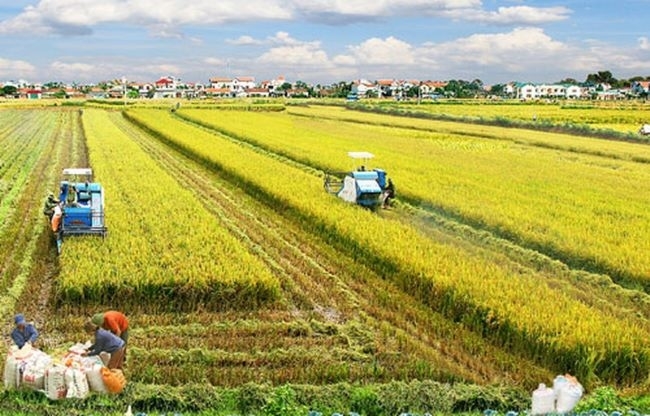 |
| The State Bank of Vietnam has proactively implemented a preferential loan program to support entities participating in the high-quality rice chain (Photo: VH) |
The Mekong Delta, known as Vietnam’s rice bowl, is the country’s largest rice-producing region. It supplies more than 50% of the country’s rice output and plays a major role in rice exports. However, the region is facing many challenges from climate change, including drought, saltwater intrusion, and land subsidence. These factors not only reduce the area of arable land but also seriously affect rice productivity and quality.
In response to these challenges, on November 27, 2023, the Prime Minister approved the Project "Sustainable development of 1 million hectares of high-quality and low-emission rice cultivation associated with green growth in the Mekong Delta by 2030" under Decision No. 1490/QD-TTg. The Project not only aims to increase rice yield and quality, but also focuses on environmentally friendly agricultural production solutions, reducing emissions and protecting natural resources. This is one of the Government's long-term strategies to ensure national food security, while increasing the export value of Vietnam's rice.
Support entities participating in the high-quality rice chain
One of the key factors to realize the objectives of the Project is to ensure that farmers and businesses can access the necessary capital to carry out production, purchasing, processing and consumption of rice. Understanding the importance of finance for the agricultural sector, the State Bank has proactively implemented a preferential loan program to support entities participating in the high-quality rice chain.
On October 11, 2024, the State Bank of Vietnam issued guidelines on the rice production support loan program, according to which credit institutions (CIs) and foreign bank branches are required to provide preferential credit packages to enterprises, cooperatives and farming households participating in this chain. This loan program will be implemented in two phases.
Specifically, in the pilot phase (until the end of 2025): Agribank, as the leading bank in the agricultural sector, will be primarily responsible for providing preferential credit to units participating in high-quality rice production in the Mekong Delta. Agribank commits to providing loans with lower interest rates than normal commercial loans, creating conditions for farmers and businesses to access capital at low costs.
Expansion phase (from 2026 to 2030): After the end of the pilot phase, the program will be expanded to the entire system of credit institutions. Banks such as BIDV, VietinBank, Sacombank, MB will participate in providing credit to entities participating in the rice production chain. This helps increase access to loans for farmers and businesses, expanding the scope of the program throughout the Mekong Delta.
The preferential loan program for sustainable development of 1 million hectares of high-quality rice in the Mekong Delta is implemented by the State Bank with flexible loan conditions and special incentives to provide maximum support to farmers and enterprises participating in production. According to regulations, credit institutions will use self-mobilized capital to provide credit to production units, however, the loan interest rate will be at least 1%/year lower than the normal loan interest rate on the market. This helps to minimize financial costs for entities participating in the rice chain.
In addition to preferential interest rates, the program also allows farmers, cooperatives and businesses to borrow capital without collateral, with a maximum loan amount of up to VND3 billion. For high-tech agricultural projects or sustainable agricultural linkage models, the unsecured loan amount can reach 70-80% of the project value, helping these units easily access capital to invest in production.
In addition, the program also has flexible debt settlement mechanisms, helping businesses and farmers reduce debt repayment pressure in case of difficulties due to natural disasters, epidemics or other objective factors. The State Bank of Vietnam has allowed credit institutions to restructure debt repayment terms, maintain debt groups for customers at risk and apply debt forgiveness mechanisms in necessary cases. This not only helps farmers and businesses overcome difficult times but also encourages them to continue investing in sustainable agricultural production.
The preferential loan program for sustainable development of 1 million hectares of high-quality rice not only helps producers access capital more easily, but also has a positive impact on the entire agricultural economy of the Mekong Delta. Access to low-cost capital helps businesses and farmers invest in advanced farming technologies, increasing rice productivity and quality. This not only helps improve farmers' income but also enhances the competitiveness of Vietnamese rice in the international market.
At the same time, encouraging the use of low-emission farming methods and high-tech applications in rice production also helps minimize negative impacts on the environment, protect natural resources and maintain sustainable agricultural production in the Mekong Delta in the long term. This is one of the important solutions for Vietnam to respond to the challenges of climate change and ensure food security in the future.
Challenges and opportunities
Although the 1 million hectare sustainable development loan program for rice monoculture brings great opportunities for agriculture in the Mekong Delta, its implementation also faces some challenges. First, identifying high-quality rice monoculture areas and building a production linkage system still face many difficulties. Localities need to closely coordinate with relevant ministries and sectors to ensure that the program is implemented in the right direction and achieves the highest efficiency.
In addition, the disbursement capacity of credit institutions also depends on the capital absorption capacity of the entities participating in the chain. Building trust and enhancing the effectiveness of cooperation between enterprises, cooperatives and farmers are important factors for the program to maximize its effectiveness.
However, if these challenges are overcome, the program will bring long-term benefits not only to agriculture in the Mekong Delta but also to the entire Vietnamese agricultural economy. Financial support from the banking system will help businesses and farmers access the necessary capital to invest in sustainable agricultural production. Thanks to preferential credit packages from the State Bank's lending program, farmers and businesses will be able to upgrade agricultural infrastructure, improve farming technology and invest in irrigation systems, organic fertilizers and new high-yield rice varieties that can withstand harsh conditions caused by climate change. This will significantly increase their production capacity while ensuring emission reduction and environmental protection.
The program also opens up opportunities for small-scale farmers and small and medium-sized enterprises, who often have difficulty accessing commercial loans due to lack of collateral. With the collateral-free lending policy, these farmers can access capital more easily to expand production scale, apply advanced farming techniques and participate in the rice production chain. Thereby, they can optimize production costs and increase product value, improve their economic life and contribute positively to local economic development.
With the lending program being implemented into the expansion phase after 2025, the participation of credit institutions other than Agribank will expand the scope and access to capital for producers across the Mekong Delta. Other banks such as BIDV, VietinBank, Sacombank, and MB will have additional preferential credit packages, helping the program achieve wider coverage and meet the diverse capital needs of farmers and businesses.
At the same time, coordination between banks and government agencies and regulators will help improve the process of identifying and allocating financial resources. Relevant ministries such as the Ministry of Agriculture and Rural Development, the Ministry of Finance and local People’s Committees will continue to play an important role in monitoring, guiding and ensuring that the program achieves the economic and environmental goals set out in Project 1490. In this way, those involved in rice production and processing can ensure that investments in agricultural infrastructure, techniques and farming technologies are used effectively.
The 1 million hectare sustainable development loan program for high-quality rice cultivation in the Mekong Delta is not only a short-term financial solution, but also a long-term strategy towards sustainable development for Vietnam's agricultural sector. Financial support from banks, with the pioneering role of Agribank and then other credit institutions, will create an important stepping stone to help farmers and businesses access the necessary capital to invest in modern, efficient and environmentally friendly production.
Thanks to the close coordination between the State Bank, credit institutions and relevant agencies, Project 1490 not only helps improve rice productivity and quality, but also contributes positively to the protection of land and water resources and the reduction of greenhouse gas emissions. This is a testament to the importance of combining finance and agriculture in moving towards a modern, sustainable and environmentally responsible agriculture.
The successful implementation of this program will help not only the Mekong Delta but also the Vietnamese economy to increase its competitiveness in the international market, meeting the increasing demand of demanding export markets for the quality and sustainability of agricultural products. In the future, the sustainable development of 1 million hectares of high-quality rice will contribute to ensuring food security, creating stable jobs for people, and promoting the green agricultural transition for Vietnam.
Source: https://dangcongsan.vn/kinh-te/thuc-day-phat-trien-1-trieu-hec-ta-lua-chat-luong-cao-tai-dong-bang-song-cuu-long-680911.html


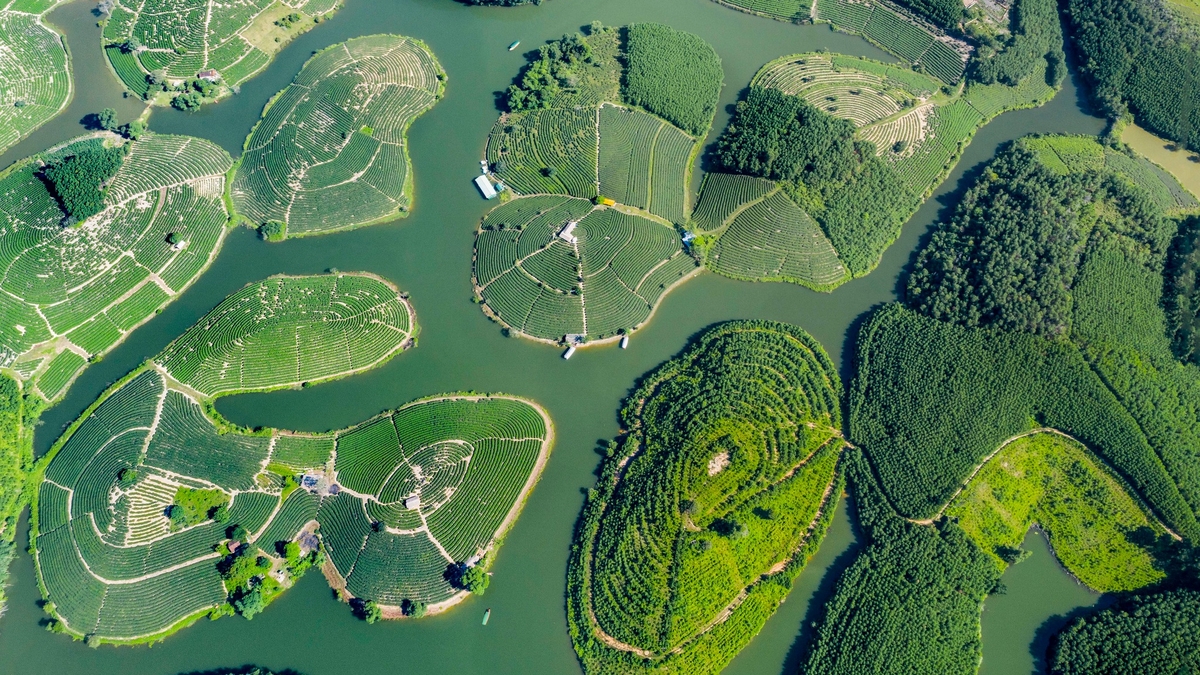
![[Photo] Vietnam and Sri Lanka sign cooperation agreements in many important fields](https://vphoto.vietnam.vn/thumb/1200x675/vietnam/resource/IMAGE/2025/5/5/9d5c9d2cb45e413c91a4b4067947b8c8)




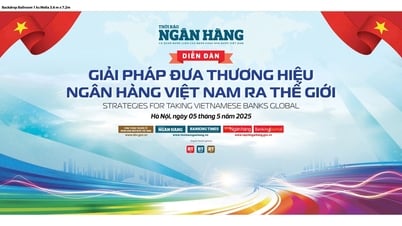

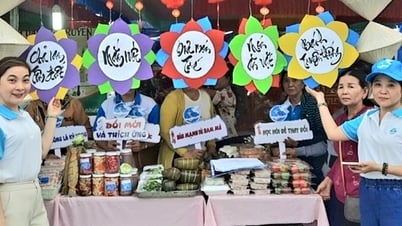








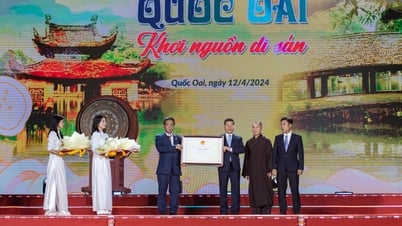

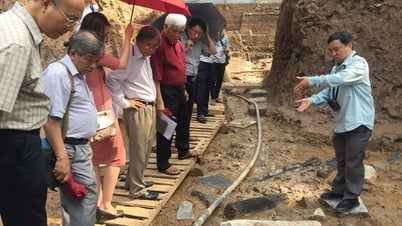
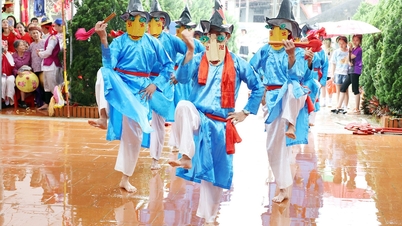


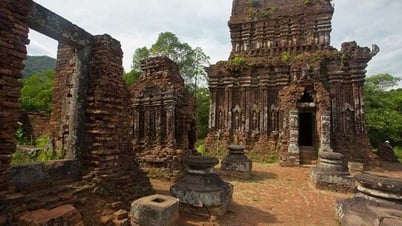

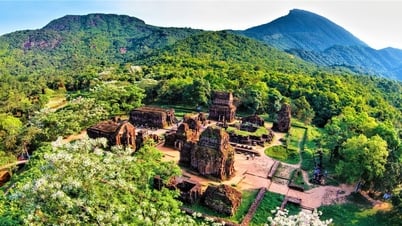

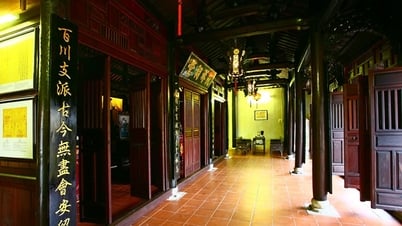

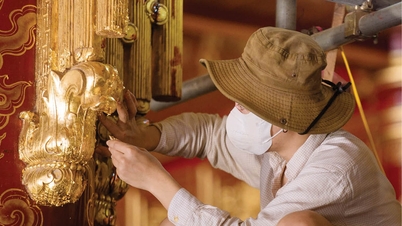







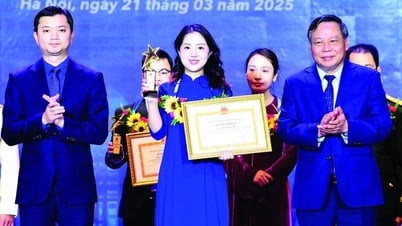

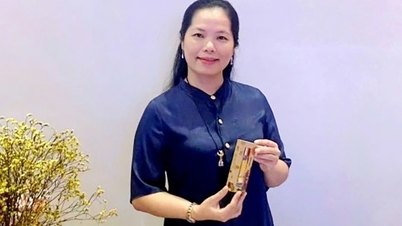

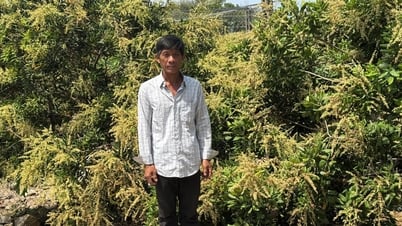
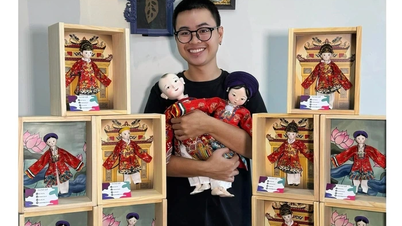



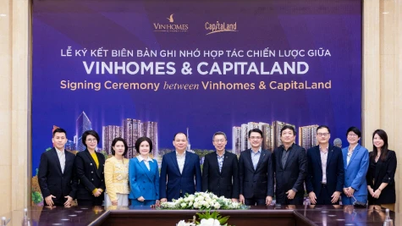

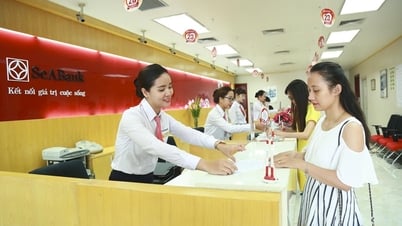








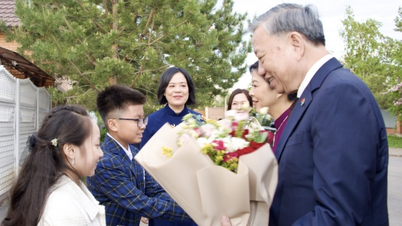

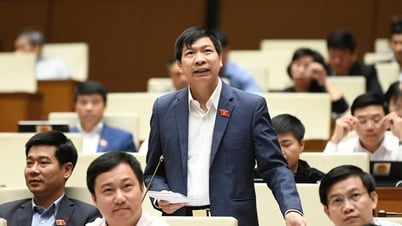


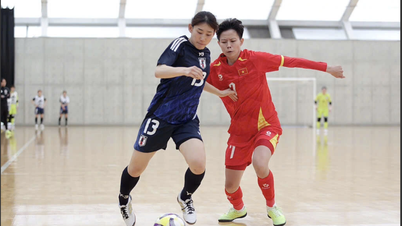
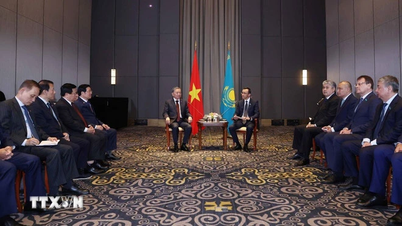

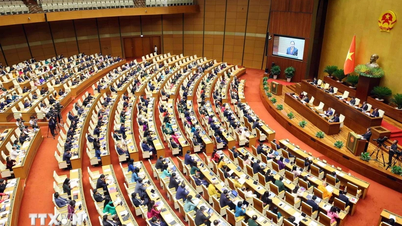



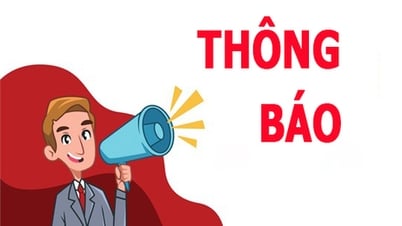




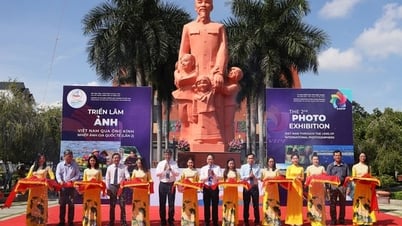


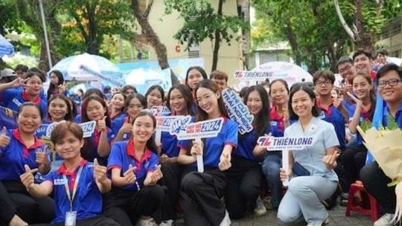









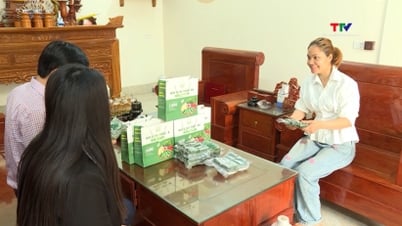

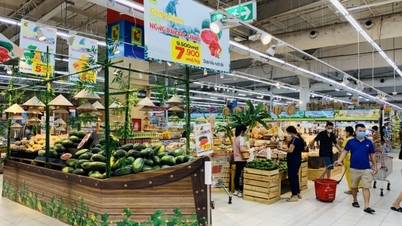

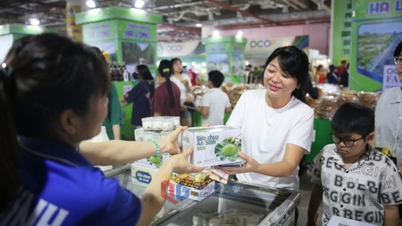

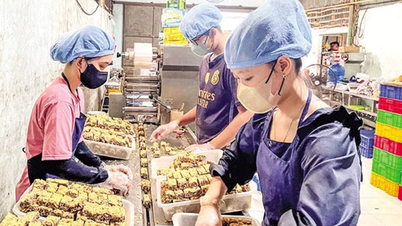

Comment (0)